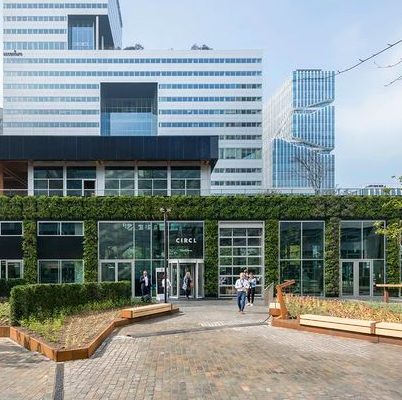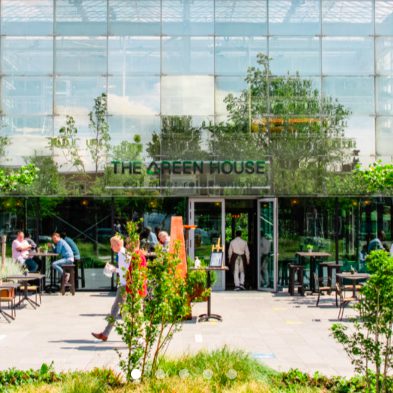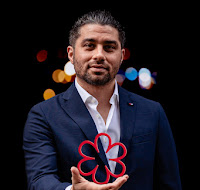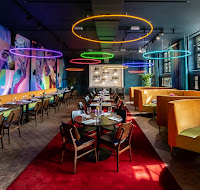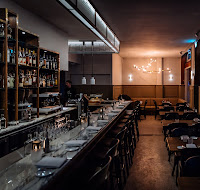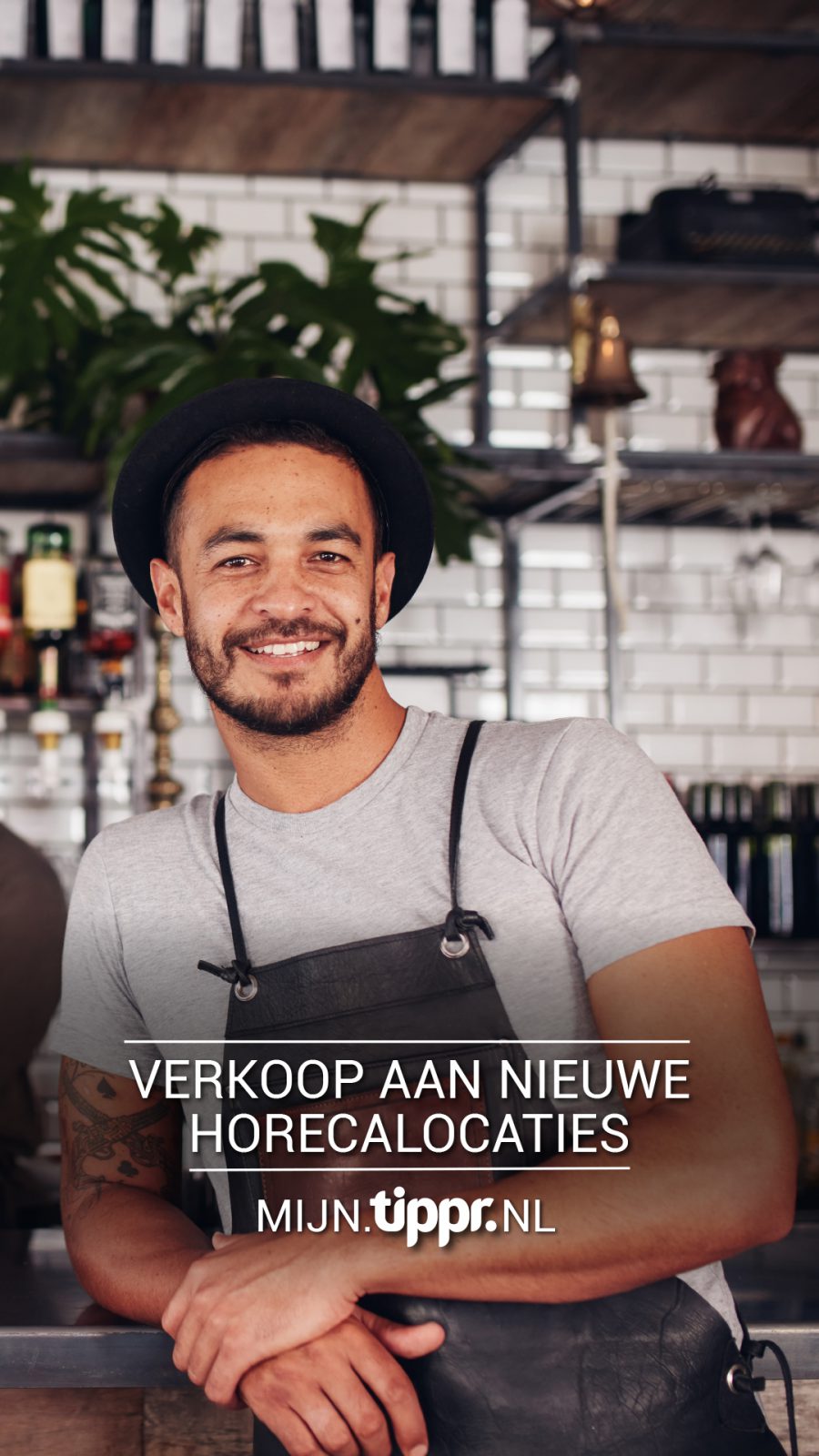We’ve all heard of it, the 80/20 rule. A simple truth that is reflected throughout your restaurant, but how can you use for accelerating in the hospitality industry? 10 tips from scientist Ron Naples & star chef Dennis Huwaë.
10 tips from a scientist & starred chef
80% of your revenue from 20% of customers, 80% of the tip from 20% of the staff and 80% of your revenue from 20% of your days. Even across the industry as a whole the rule applies; 80% of new restaurants fail within the first 5 years.
This, of course, begs the question: how do you make sure you are among that TOP 20%? In this TIPPR Blog you’ll read how experts share their experiences to help you fall on the right side of the 80/20 rule.
Staying up to date? Download the TIPPR-app?
The art of accelerating !
It may sound obvious, but it is important to point out that consumers make choices based on their own preferences. Those preferences are different for everyone and may even differ based on mood, daypart or a whole host of other influences. What we mean to say is this: the perfect restaurant is different for everyone.
Fortunately, science has now managed to create a shortlist of components that are considered important by almost everyone (only at different heights). In short, restaurants differentiate on:
- The food
- Service
- The design
- An X-factor
That sounds logical, but then how do you create differentiation in that?
“Energized differentiation”
– Adjunct Associate Professor Ron Naples –
We spoke to Adjunct Associate Professor Ron Naples of New York University, specializing in Restaurant Management & Entrepreneurship, on his insights:
What is your view on what persuades people to go to a particular restaurant today?
The restaurant landscape has changed significantly because of Covid-19. Before the pandemic, there were basically two main reasons to visit a restaurant: to eat something or to celebrate something.
These two extremes formed a broad spectrum on which every restaurant could be placed and also had space, from the student who got a pizza for dinner to the couple who traveled two hundred miles to a Michelin restaurant to celebrate their wedding.
However, Corona instituted a lasting change as guests were “re-trained” to look at hospitality in a different way. Because everyone could only get food delivered to their homes, slowly but surely all expectations were scaled back.
This development had two important exceptions:
- The quality of the food (differentiator 1: the food)
- The values of the restaurant (differentiator 4: the X factor).
On the contrary, these two values became more important due to home delivery. So now we see this reflected in the expectation patterns of our guests.
Quality of food has always been important, of course, but the second expectation in particular, the values of the restaurant, is a new factor. Guests across the spectrum are increasingly looking for hospitality establishments that convey values that match their own.
“Is this business like me?” is an increasingly important question guests are asking to base their final choice on.
“Is this business like me?”
How could you apply this as a hospitality entrepreneur? In particular, does this have to do with social aspects such as being active in the neighborhood?
It may have to do with the neighborhood, but you can also put yourself out there completely by focusing on social or environmental goals. Think gluten-free, or ecologically responsible, or make sure you waste as little food as possible. (We personally think 101 Gowrie by Alex Haupt is a great example of this: click here for the interview with him).
Also, communicate what you’re all about. Mention it on social media on your website. This way, consumers can find out what you stand for and you will also profit from the attention and investment you make to make your story true.
In doing so, however, it is essential that you actually do what you say. If you say you only buy local, you can’t have pineapple or avocado on your menu. The expectation you create must be met. Consumers who care about the topics you focus on also know enough about them that they’ll snap right through it if you don’t do it for “real.”
If you say you only buy local, you can’t have pineapple or avocado on your menu.
This applies not only to your food, but to all elements of your restaurant. If you call yourself ecologically responsible, you can’t use vinyl tablecloths that are all made of petroleum again. The whole picture just has to be right.
Suppose you have a certain budget as an entrepreneur, what would you recommend to spend it on? Focus on a few differentiators or increase the overall level of the business?
In my mind, every restaurateur should invest at least a little bit in researching his or her service area. Where guests walk and who are my competitors? Then you can start investing in differentiators, things that are unique to your business.
Do you and your competitor both sell pasta but yours is homemade? Then name this in your story (website, social media, on the map) and make it important. I call that “Energized Differentiation”. Make sure you excel in specific points and base your story on that. People will naturally gravitate towards that.
In addition, that story ensures that price does not become the deciding factor. Because you make it important that the pasta is homemade (Spaghetteria) or that the interior is completely sustainable ((The Greenhouse, The Circle), the guest thinks so too.
Of course, you have to remember that the guest is not willing to give up too much for a USP (‘Unique Selling Point’). So the quality, the interior and the service should not be inferior to that of the competitor. But the real differentiation, the ability that you have to be chosen, that takes place on the basis of your unique elements.
“Energized Differentiation”.
Make sure you excel in specific points and hang your story on those.
So how should you tell this story?
To make your unique factors really stand out, you need to determine from your research exactly who finds it important. No matter how important you make something, it must of course fit in with what the guest already considers important themselves. If you find the right tone in that, then you can grab a target audience that is a guaranteed fit for your concept.
So then I don’t just get the guest who happens to be walking by and is hungry, but also the guest who pays more attention. Once the first guests are in, it automatically fills up faster. So the guests who are connected to your values are important because they will always come.
Also remember that you are not excluding anyone with it; the people who care will be attracted to it, the rest don’t care so are not affected by it.
You also need to make your story clear in the places where guests naturally go. Nowadays that’s on the Internet: blogs, social media, stories on the website. So make sure your story is represented there as well.
With a strong story, you become more interesting online. Guests are more likely to post a photo of a restaurant that does special things in line with their own values, so your most valuable form of advertising – word of mouth – is automatically boosted by it.
What would you like to share with hospitality professionals?
Yes, what I still think is most important is that hospitality should come from a passion. As a restaurateur you have to follow your passion, because if you do that you will automatically find the guests who are also passionate about what energizes you.
Summarized:
The core for ass. Prof. Naples is thus as follows: Be aware of your environment and from that awareness define and create a portfolio of factors that make you unique and arise from your passion. Those factors can be quality, service, design or X-factor (for example, being against food waste) related.
Make those unique elements important in your story and share that story both in your restaurant and online. Then you will automatically get the guests who fit your concept. Working from your strength and passion is the driving force for success, because it flows through in everything in the concept. Exhibiting your unique values and making them important is therefore the core of distinctiveness, and those who stand out will be chosen.
TIPS:
- Do research on your customers and concurrency.
- Make a list of things that make you unique in terms of food, design, service and the X-factor.
- Make your unique factors important in your story.
- Share your story in places where your target audience also comes.
- Eliminate elements that don’t fit your unique factors.
What does being in your power look like in reality?
Dennis Huwaë
Because we were inspired by the story of ass. Prof. Naples, we asked Dennis Huwaë, in our eyes an example of working from your passion and your strength, about his insights. Dennis is the owner and chef of Daalder (1 Michelin star) and Daalder Atelier – an intimate restaurant located at the former Daalder location. We spoke to him on the terrace of Daalder Atelier.
How do you make sure you differentiate?
In the kitchen, my main concern is that what I do and make matches who I am and what makes me happy. It’s not necessarily about how much I want to show my personality to others. But I know that I am at my most powerful when I am close to myself.
I also came into the world as myself, so why should I suddenly start following others without stopping or thinking about it. That “why” question is essential anyway. In everything you do, from what butter you use to what art you hang on the wall to what wine you arrange.
And then don’t come up with “because I’ve always done it that way,” because that’s just a sh*t answer. It’s about tasting, re-tasting, considering, thinking for yourself. That’s how you get to something that’s really good and something that actually comes from you.
“Because I’ve always done it that way”, because that’s just a SH*T answer.
– Dennis Huwaë –
Dennis shows very clearly what his story is – Daalder and Daalder Atelier are Dennis translated into restaurants. The unique factors that ass. Prof. Naples mentions abound, because Dennis is unique in abundance.
For me, the menu structure is also really a must. I’ve been to a number of restaurants that were supposedly “top 10” in the world but where the menu just isn’t right. The dishes on their own are really good, but the relationship to each other work. A lot of people don’t get that, a lot of chefs don’t even get that. But at that level, a menu just has to fit together seamlessly.
You’re not selling individual dishes, you’re offering a complete experience and if your menu isn’t right, that experience isn’t right either. Again, that why question must apply. Why do I do oysters first and then the cod? Why not the cod first? Because that’s always the order? Nonsense! Taste, look, compare and only then choose.
Finally, it is also extremely important that you have a good relationship with your suppliers. You’re all in that chain together, so I also think you should then take care of each other. I find that very normal. My suppliers are always there for me – if I’m in the sh*t on Sunday I know I can call them. I don’t have to hesitate, they always come, sometimes they even bring their kids. They only do that because I do the same for them.
When my fish supplier calls me up saying “I have three beautiful turbot lying around, but I can’t get them to sell,” I take them. Here at Daalder Atelier I then experiment with it and put it on the menu for three evenings. It doesn’t matter to the guest. Because it remains top-quality, that’s what I find most important.
Although Dennis does not name it himself, we think this is a great example of reducing waste in the chain. The restaurant industry is the final outlet, but waste naturally also plays a role at the suppliers. Taking up the challenge together to do justice to beautiful products is a wonderful aim. Read more about our initiatives to reduce waste here.
Is it also important to you that you don’t do what others do?
No I’m not really concerned with that. But I do want to have thought about every step I take instead of just blindly following. For example, I also use a lot of ingredients that others would probably throw away. Not because others would throw them away, I really am completely not unconcerned with other people. But not letting yourself be limited by what you’ve learned from others and checking for yourself that it’s really the case is very important to me.
So where do you get your inspiration, if you don’t look at others?
Just from very different things. From art, or listening to music, talking to friends who do very different things, being a carpenter or doing business on the Internet. Inspiration and creativity can’t be forced or created, you get it one time when you’re busy and the next time when you’re at peace.
I do enjoy working here (in Daalder Atelier) a lot. I deliberately set it up on a smaller scale to also have the space to experiment. Many of the dishes end up coming out of this kitchen the first time. In Daalder that’s harder because it’s bigger. When it’s busy in your head and then busy around you, you go crazy.
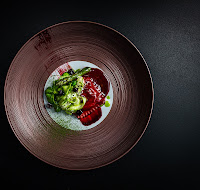
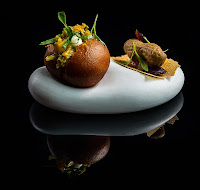
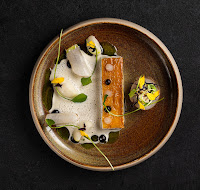
Do you experience more pressure because you want to keep your star or even achieve an additional star?
I think people put that pressure on themselves in particular. I do that too, of course, but there’s no point in worrying about things that are beyond my control. The pressure with me is mainly in developing new dishes. In making my guests and my family happy. In the end, my goal has always been very clear: I just want to have the best restaurant in the world.
Of course, that also has to do with marketing. Today’s “best” restaurants are particularly small restaurants that have rock-solid marketing, not normal. All over the world everyone knows of the existence of those restaurants. I would like to be one of them myself, but then it has to be really right.
The story shouldn’t make reality look better than it is, so that standard of quality is really essential for me in everything I do. Two stars for me is the least I want. I’ve always cooked at that level when I was employed, so that’s just the minimum.
I also wouldn’t necessarily want bigger or more, I’m not doing this for the money. What I would like though? To create a good private work balance, just to have a good business model that allows me to be a good employer as well. That we earn enough, that we serve the best quality food and the guests are happy.
And that I then have enough time left for home and sports. But I’m not chasing anything more than that. Focusing on money is, in my view, just a distraction from what’s really important, and if you’re distracted you can’t become the best.
Again, Dennis strongly echoes the points of ass. Prof. Naples: first, he mentions the importance of telling your story on as large a platform as possible. Second, and perhaps more importantly, he indicates that you can’t get really good if you don’t work from your passion.
What would you like to become even better at, outperform?
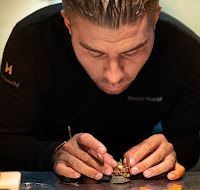
Well we just talked about it briefly, but that marketing is really something I would like to get better at. If you really want to belong to the big restaurants you have to make sure everyone knows your name. I believe that’s the same for the restaurant industry as it is for big stars. There are a million women more beautiful than Rihanna, but she is always named down as the most beautiful woman in the world.
If you just keep telling that story every time, it will automatically become the truth. But as I said before, I think especially in our business that quality and reality should never be inferior to the story. Otherwise, you’re just lying while pretending the guest doesn’t realize it.
Dennis is another inspiration to us in willfulness and passion. While not everyone is cut out for running a business like Dennis’, his story offers insights that are of interest to any hospitality entrepreneur:
TIPS:
- In everything you do, ask the “why” question.
- Always keep tasting and testing – don’t blindly assume what others tell you.
- The composition of your menu is just as important as the composition of your dishes.
- Work with your suppliers – don’t just take, but bring.
- Tell your story.

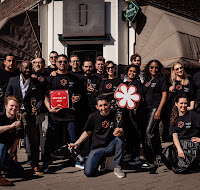
Want to know more? Download the TIPPR-app app to TIPPR’n with us.
TIPPR editor: Wessel Driessen
Photo credits: Lyan van Furth
While you’re here …
Would you like customized inspiration that is tailored to your needs?
Then download the TIPPR app completely FREE and receive unlimited input to boost your sales or open a TIPPR shop. Click here
Get further inspiration in the TIPPR-app!


